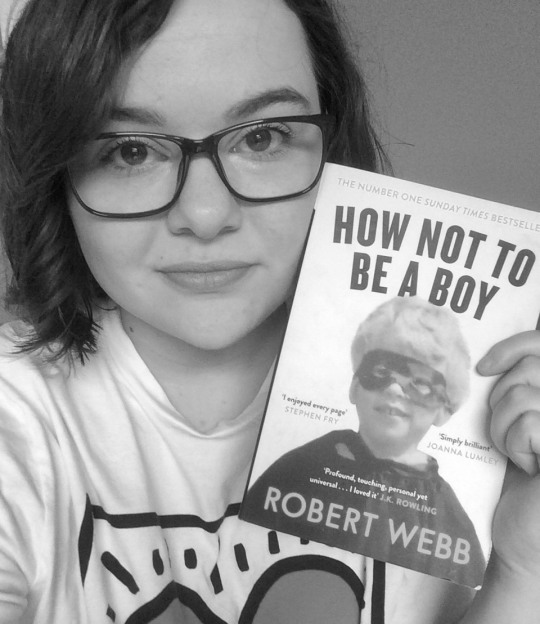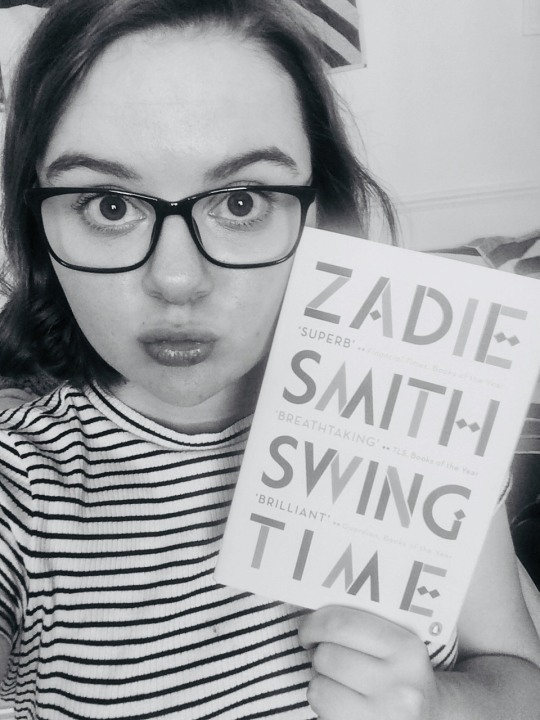Text
Travellers in the Third Reich by Julia Boyd

The blurb: ‘Travellers in the Third Reich is an extraordinary history of the rise of the Nazis based on fascinating first-hand accounts, including students, politicians, musicians, scholars, athletes, journalists, tourists, even celebrities like Charles Lindbergh and Samuel Beckett. Their experiences create a remarkable three-dimensional picture of Germany under Hitler - one so palpable that the reader will feel, hear, even breathe the atmosphere. These are the accidental eyewitnesses to history. Disturbing, absurd, moving, and ranging from the deeply trivial to the deeply tragic, their tales give a fresh insight into the complexities of the Third Reich, its paradoxes and its ultimate destruction.’
First of all, this book is heavy. Both literally and metaphorically. It’s a pretty long book and a dense read. It took me almost a month to get through. So if you’re super busy at the moment this is probably not the book for you right now. But if you’ve got some time you’re going on holiday and want a big historical brick to read, ding ding! This book is a winner.
Julia Boyd has essentially compiled a huge number of diary entries and first hand accounts from a multitude of foreigners travelling through Germany from the end of the first World War to the end of the second World War. The book chronicles Germany’s recovery from the first war and the rise of Hitler, all from the point of view of ordinary people. The author places a lot of emphasis on how modern day historians struggle to analyse this time objectively, due to the hindsight we have now regarding the horrors inflicted by the Nazis and the Holocaust.
She solves this by including the impressions and opinions of a multitude of different people, none of whom are originally from Germany and were just visiting during this period. These people offer an assortment of views of the country and display varying degrees of naivety regarding Hitler’s ascent and the activities of the Nazi soldiers. This is a very interesting way of exploring such a turbulent time, as many of the contributors are largely unaffected by the consequences of the Nazis and the war and their impressions of the initial enthusiasm for Hitler are similar to that of hysteria surrounding a celebrity.
The author’s focus on the desperation of the German people directly after the first World War meant that I could to a certain extent understand why so many clung to the certainty and stability promised by Hitler during his campaign. It was interesting but also quite disturbing to draw parallels between that period and the present day, particularly in reference to the election of a certain deranged Wotsit baby.
All in all, Travellers in the Third Reich is a very informative if slightly difficult book. If you don’t have a lot of brain space at the moment, maybe wait a while to read it. There’s a lot of information and a lot of big questions asked by this book that take some serious mind juice.
0 notes
Text
How Not To Be A Boy by Robert Webb

The blurb: ‘Robert Webb tried to follow the rules for being a man: don’t cry, drink beer, play rough and don’t talk about feelings. Looking back over his life he asks whether these rules are actually any use. To anyone.’
I first heard about this book when Robert Webb was promoting it on Graham Norton and remember thinking it was right up my street. Autobiographies? Love ‘em. Comedians? Cracking. Feminism? YAS. I put off buying it for ages because of my Book Tower Of Unread Doom but eventually gave in when I stumbled upon it in W H Smiths. I then read it in two days. It’s great.
First off, if you struggle with autobiographies, you probably won’t with this one. Webb is a seriously engaging writer and absolutely hilarious (I’ve not seen Peep Show but definitely want to watch it now). I did several full on ugly snorts of laughter on public transport which earned me some concerned looks from commuters. Speaking of public transport, maybe don’t make my mistake and read it on the tube. While it’s hilarious at times, it’s also incredibly sad (Webb did not have a great time as a kid) and I actually welled up several times reading it. Regular users of the Central Line must know me as that weird girl who can often be observed violently convulsing over books (whether that be trying to hold back laughter or trying to hold back tears).
Webb tells the story of his life through a selection of beautifully written anecdotes. Each chapter is named for something that boys or men, by society’s standards, ‘don’t do’. Webb does an amazing job of exploring toxic masculinity, and how unhelpful the way men are expected to behave is regarding their own physical and mental health and the well being of those around them. It was so refreshing to read a feminist book written by a man. Obviously, I’ve not grown up as a guy so have a limited understanding of the struggles they face. Issues such as toxic masculinity and male mental heath/suicide are so important AND totally relevant to feminism, so I wanted to try and learn a bit more about it. Webb strikes the perfect balance between making his point but still keeping the book entertaining and fast paced.
I would 100% recommend How Not To Be A Boy to anyone, but especially my guy friends. It’s definitely worth a read.
0 notes
Text
Swing Time by Zadie Smith

The blurb: 'Set in London, New York and West Africa, Swing Time is about two brown girls from Willesden who dream of being dancers. Only one – Tracey – has the talent. But the other has ideas which take her further than she could ever have imagined. It is a story of finding happiness in the meanest of places and feeling sad when all around you are happy. It's about the choices we make and the choices made for us. Above all, it's a tale of the friendships that anchor us, define us and change us forever.'
I haven't read any of Zadie Smith's previous novels, but I've seen her praises sung all over the place and had kept meaning to look into her. After reading this book, I added all of her others to my Amazon wish list (you could probably start a library with the amount of books on that list). It's beautifully written, sensitive and she shows such an amazing understanding of the intricate relationships between women. When Smith is writing about the (unnamed) main character's interactions with her childhood best friend, her mother or her temperamental employer, each relationship is given nuance and complications. There is nothing I hate more in books than wishy washy, poorly written female characters and in this novel there are none. NONE. THANK YOU, ZADIE SMITH.
Another thing I really appreciated about this particular book is that the chapters are really short. This may sound weird, but I hate having to stop reading in the middle of a chapter. It's a similar feeling for me to stopping watching a tv episode halfway through. For example, if I'm reading a long chapter on the tube and have to change lines, I would have to dog ear the page midway through. By the time I've fought sweaty commuters and that ridiculous tourist who has stopped in the middle of the platform to get out their giant map of London, I'll have forgotten which bit of the page I was on. But if I stopped at the end of a chapter, voila! No aggressive squinting to try and work out where the hell I left off. In short, (pun intended) short chapters are good. Especially if you're reading on a cramped, smelly human carrier.
Anyway, back to Swing Time. It's a very compelling read, and even though the main character is a very flawed human being, I found myself rooting for her from the start. Her journey takes her all over the world, and Smith has clearly done some seriously in depth research on each of the places the character visits. She definitely captured North London (where I lived for a year) perfectly. The main character is a mixed race woman, with a white father and a black mother. Smith uses each country explored to intelligently address the character's feelings that she doesn't belong. Similarly, the narrator's relationships with the other characters are used to discuss topics such as race, class and gender, but in a way that isn't on the nose or disruptive to the story.
Personally, I've always struggled a little with books written in the first person. Not sure why, but I do definitely enjoy novels in which multiple characters' points of view are explored. However, I didn't find first person narration in this book to be an issue. Smith writes brilliant dialogue, so the other characters almost have as much to say as the narrator. The only thing I found slightly difficult was the chronology of the novel. For the most part, it is written in chronological order, but there are occasional sections where the story jumps forwards or backwards. This was perfectly fine most of the time, but if I wasn't concentrating (e.g. changing lines on the aforementioned tube), it would take a while for my brain to catch up.
All in all, this is a brilliant book that I would 100% recommend. Especially to any feminist buddies of mine. It's great. And I'm excited to read more of Zadie Smith's novels once I've made a bit more of a dent in my current pile of unread books.
0 notes
Text
Introduction
I'd seen Swing Time by Zadie Smith recommended all over the place when it first came out, but in a rare triumph of self control (which I have little of when it comes to books), I initially resisted buying it. This was mostly because of the gigantic tower of unread books on my bedside table that is rapidly approaching the height of The Shard, and is inevitably going to topple over and crush me while I sleep one day. Now, don't get me wrong, the problem isn't me buying books and then not reading them. The problem is that I buy books, start reading them and then buy more in a nerdy, bookwormy frenzy when I'm not even halfway through the previous lot.
Take the day I bought Swing Time for example. I was up in Cardiff visiting my lovely friend Hannah, who decided it would be fun for us to pop into the local Waterstones. I'd made a vow to myself at the beginning of the year that I wouldn't buy any more books until I'd finished 'The Pile'. But I was lead right into the dungeons of temptation (otherwise known as Cardiff Waterstones. Or any bookshop really.) Just for the record, Hannah knows about my book addiction and took me in there anyway. THANKS FOR ENABLING ME, HANNAH. So, they had a sale on. A sale. Buy one, get one half price. Already, my palms began to sweat. The sweet smell of fresh paper was coursing through my nostrils. This is getting a bit weird now but you get my drift. There was no turning back. I left that Waterstones, head hung in self-inflicted shame (this is really not a big deal, there are worse addictions than books, chill out me), with four books. My suitcase was a lot heavier to lift onto the Megabus on my journey back to London.
But anyway, the whole point of this wandering ramble is to ascertain that I love books. And reading. A lot. And rather than having to separately message my friends and family and aggressively recommend whatever it is I've read most recently, I thought it would be fun to do a little blog about it. So, here goes.
0 notes